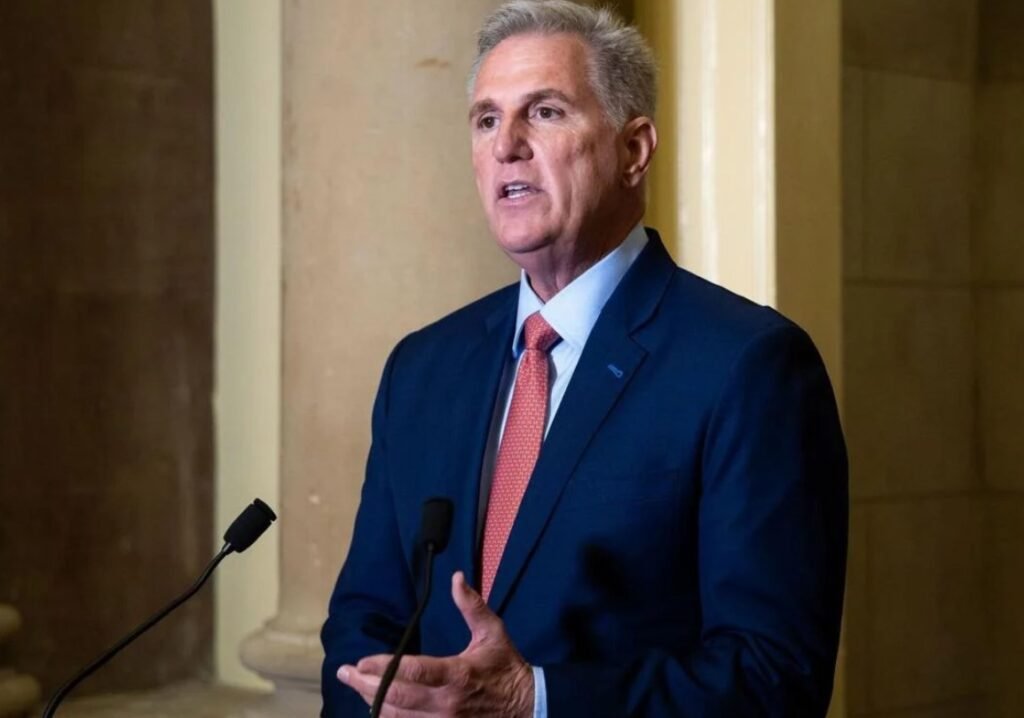The House of Representatives is facing a leadership crisis as Republicans search for a new speaker after the ouster of Kevin McCarthy last week. The two main contenders, Jim Jordan and Steve Scalise, have different visions for the party and the chamber, and neither has secured enough support to win the vote scheduled for Wednesday.
McCarthy’s downfall and the aftermath
Kevin McCarthy, the former speaker and a moderate Republican from California, was voted out of his position by a group of hard-right conservatives who accused him of betraying the party by siding with Democrats to avoid a government shutdown. McCarthy had only served as speaker since January, when he narrowly won the election after 15 rounds of voting.

His removal was unprecedented and sparked a power struggle within the Republican caucus, which holds a slim majority in the House. Some lawmakers have called for McCarthy to run again, while others have urged him to step aside and let a new leader emerge. McCarthy has not ruled out either option, but he has said he will not seek the speakership if he does not have enough votes.
Jordan vs Scalise: The candidates and their platforms
The two most prominent candidates to replace McCarthy are Jim Jordan and Steve Scalise, both members of the House Republican leadership team. Jordan is the chairman of the House Judiciary Committee and a staunch ally of former President Donald Trump. He is backed by the Freedom Caucus, a group of ultra-conservative lawmakers who spearheaded McCarthy’s ouster. Jordan has vowed to fight against President Joe Biden’s agenda and restore Trump’s legacy.
Scalise is the House Republican whip, the second-highest ranking position in the party. He is a more pragmatic and conciliatory figure who has worked with Democrats on some issues, such as infrastructure and disaster relief. He is supported by many moderate and establishment Republicans who want to avoid further divisions and focus on winning back the Senate and the White House in 2024.
Both candidates have been lobbying their colleagues for support, but neither has reached the magic number of 218 votes needed to win the speakership. According to some reports, Jordan has about 150 votes, while Scalise has about 180. However, these numbers are not official and could change before Wednesday’s vote.
The challenges and implications of the speaker vote
The speaker vote is not only a matter of internal politics, but also a reflection of the direction and identity of the Republican Party in the post-Trump era. The outcome will have significant consequences for the functioning of the House and the relationship between the two parties.
If Jordan wins, he will likely pursue a more confrontational and partisan approach, which could lead to more gridlock and polarization in Congress. He will also face resistance from some moderate Republicans who disagree with his style and agenda. He may also face legal challenges from Democrats who want to investigate his role in the January 6th Capitol riot, which he has downplayed and defended.
If Scalise wins, he will likely try to balance between appeasing his conservative base and reaching out to Democrats on some issues. He will also face pressure from some hard-right Republicans who may see him as too weak or compromising. He may also face criticism from Trump and his loyalists, who may view him as disloyal or insufficiently supportive.
The speaker vote will also send a message to the American public and the world about how Republicans intend to govern and what they stand for. As Mike McCaul, the chairman of the House Foreign Affairs Committee and a supporter of McCarthy, said on Sunday: “What kind of message are we sending to our adversaries when we cannot govern, when we are dysfunctional, when we don’t even have a speaker of the House?”
